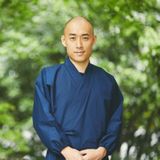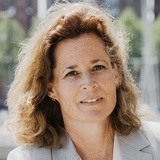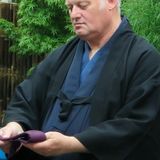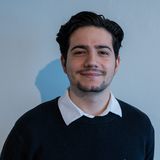In the new Designing Cities For All: RE-generation series (Re)designing Connection , DCFA partnered up with Shibaura House , a community hub in Tokyo as its next fellow. In this fellowship, we delve into the multifaceted concept of connection on three different scales: humans & non-humans, communities and cities. Our modern urban existence led us to disconnect from ourselves, our communities, and the cities we inhabit. How can we reclaim and (re)design these connections through personal practices and grassroots initiatives? This series aims to explore practical strategies and innovative approaches for reviving the lost essence of connection on both individual and collective levels, fostering a more inclusive city for and with all.
In the first episode of Designing Cities For All: Re-Generation series (Re)designing Connection with DCFA fellow Shibaura House we look into the concept of connection on a personal level. With all life forms, lies an interconnectedness between humans and non-humans. From the cleaning rituals of monks to simple daily interactions, we are trying to foster connections. How do we recognize and sustain our connection with other humans, non-humans, and cities through different cultural explorations?
About the DCFA Fellow
SHIBAURA HOUSE is a unique building with a completely glass exterior built in Shibaura, Minato-ku, an area in Tokyo, Japan undergoing redevelopment. It is a community space, but also the headquarters of a 70-year old company. The company’s business has changed enormously to keep in harmony with the changes in time and in the social environment. Today, it simultaneously operates the original creative business, along with a new cultural creative projects that are rooted in the local community.
About the speakers
Rev. Shokei Matsumoto received his BA in Philosophy at the University of Tokyo in Japan and MBA at Indian School of Business in India as an Ambassadorial Scholar of Rotary Foundation. He has recently published A Monk’s Guide to a Clean House and Mind in more than seventeen languages, among other books. Matsumoto has also translated books, including Roman Krznaric’s The Good Ancestor: How to Think Long Term in a Short-Term World. He has held lectures and workshops internationally and has been featured on publications including the Japan Times, the Guardian and Forbes Japan, which highlights Matsumoto as one of the “100 Hopes to Save the World” on its June 2023 issue.
While working in the Middle East as a dialogue facilitator Debra Barraud discovers the vital importance of dialogue and the power of storytelling. After returning to Amsterdam Debra, inspired by Humans of New York and Humans of Tel Aviv decides without any experience in photography or writing, to create Humans of Amsterdam . An online platform in which she shares stories of everyday people on the streets of Amsterdam.
Meike Bartels (1973) is University Research Chair professor in Genetics and Wellbeing at the Department of Biological Psychology, Vrije Universiteit Amsterdam. She started her line of research into happiness with a VENI and open competition grant from NWO. In 2014 she was appointed Professor under the University Research Program of the VU. She published, among other things, the first molecular genetic evidence and the first genetic variants for wellbeing. She received an ERC Consolidator grant to consolidate her research line and an NWO-VICI grant to further expand her research. She is a board member of the International Positive Psychology Association and director of the Research Master Genes in Behavior in Health. She leads and supervises various research projects to gain insight into the underlying sources of variation in happiness and wellbeing. With the foundation XplorIT (the foundation for wellbeing and human potential), she aims to explore a paradigm shift towards a new governance of commons, in which the principles of wellbeing are the starting point, enabling collectives of human potential – to address today’s and tomorrow’s societal challenges.
Herman Soshu Somsen followed his three-year tea training course in the tea rooms of the Urasenke head office in Kyoto, which he successfully completed in 1997. After returning to the Netherlands, he heads Urasenke’s office in the Netherlands; the Urasenke Netherlands Liaison Office in Amstelveen. He also provides tea lessons together with his assistant. Holding tea meetings in the tea room of the Netherlands Liaison Office and giving demonstrations and lectures are also among the activities provided by the Netherlands Liaison Office. I
About Designing Cities for All: RE generation
Over the first two years of Designing Cities for All (DCFA), we’ve learned about exclusion by design and the (re)design of inclusive cities. Along the journey, a certain question kept popping up: what exactly does ‘for all’ entail? After focusing mostly on the ‘who’ over the past two years, DCFA is rebooting as Designing Cities for All: RE-generation . This way around, the series is also incorporating the ‘what’ by looking through the fresh lens of regenerative design. This emerging field might very well be a promising answer to the challenges of our time, as it focuses on the design of products, services, systems, and processes that lead to both social and ecological recovery and that keep the systems healthy.











